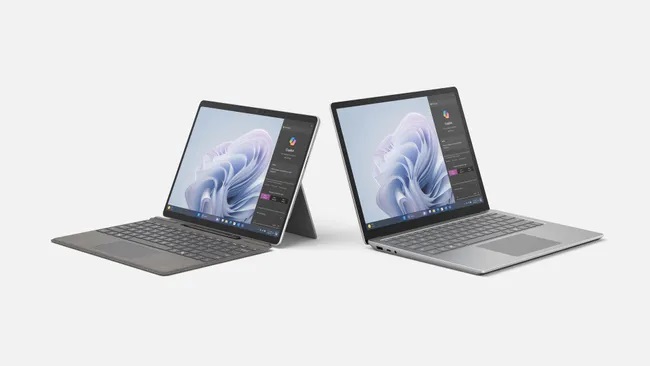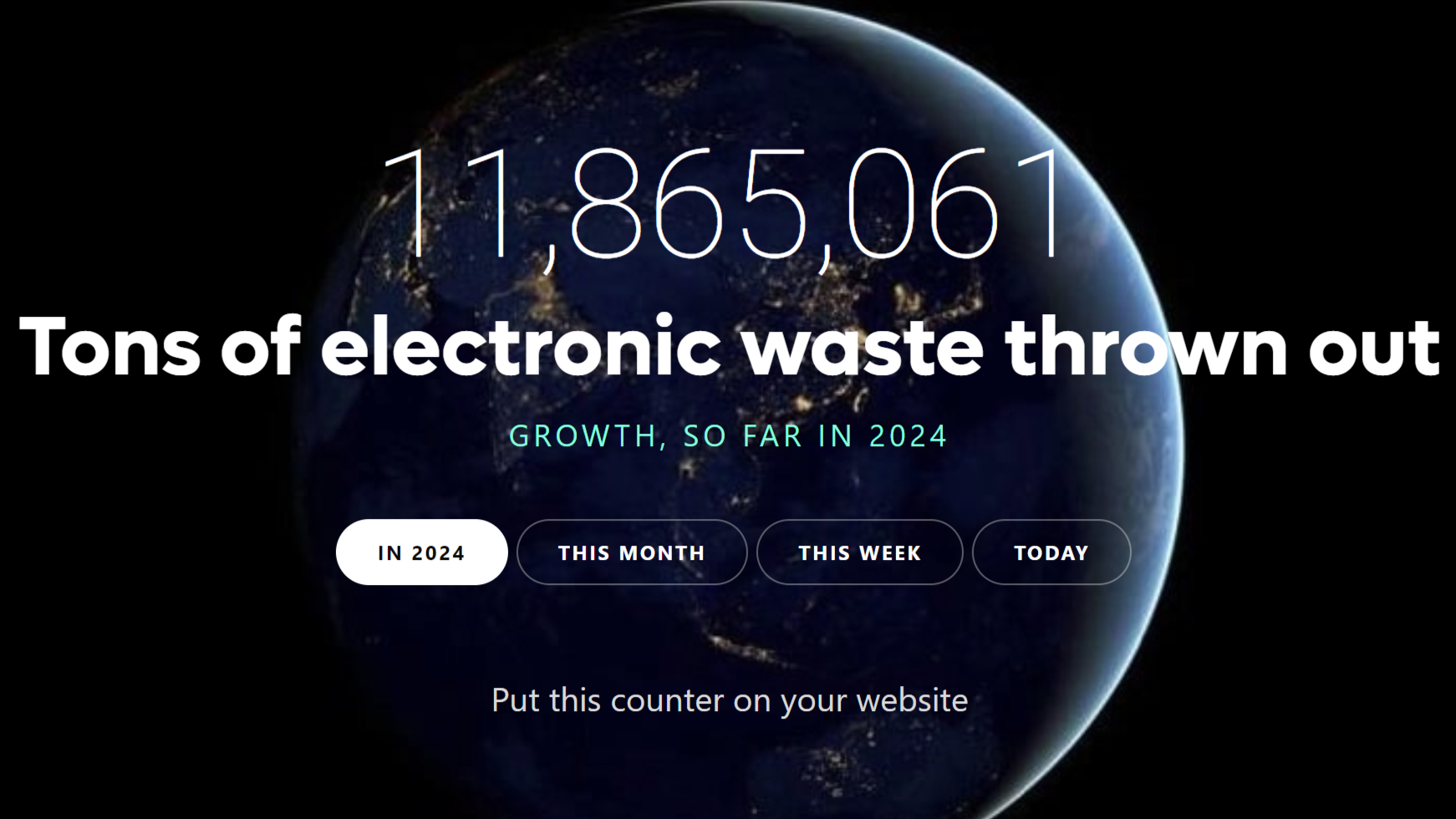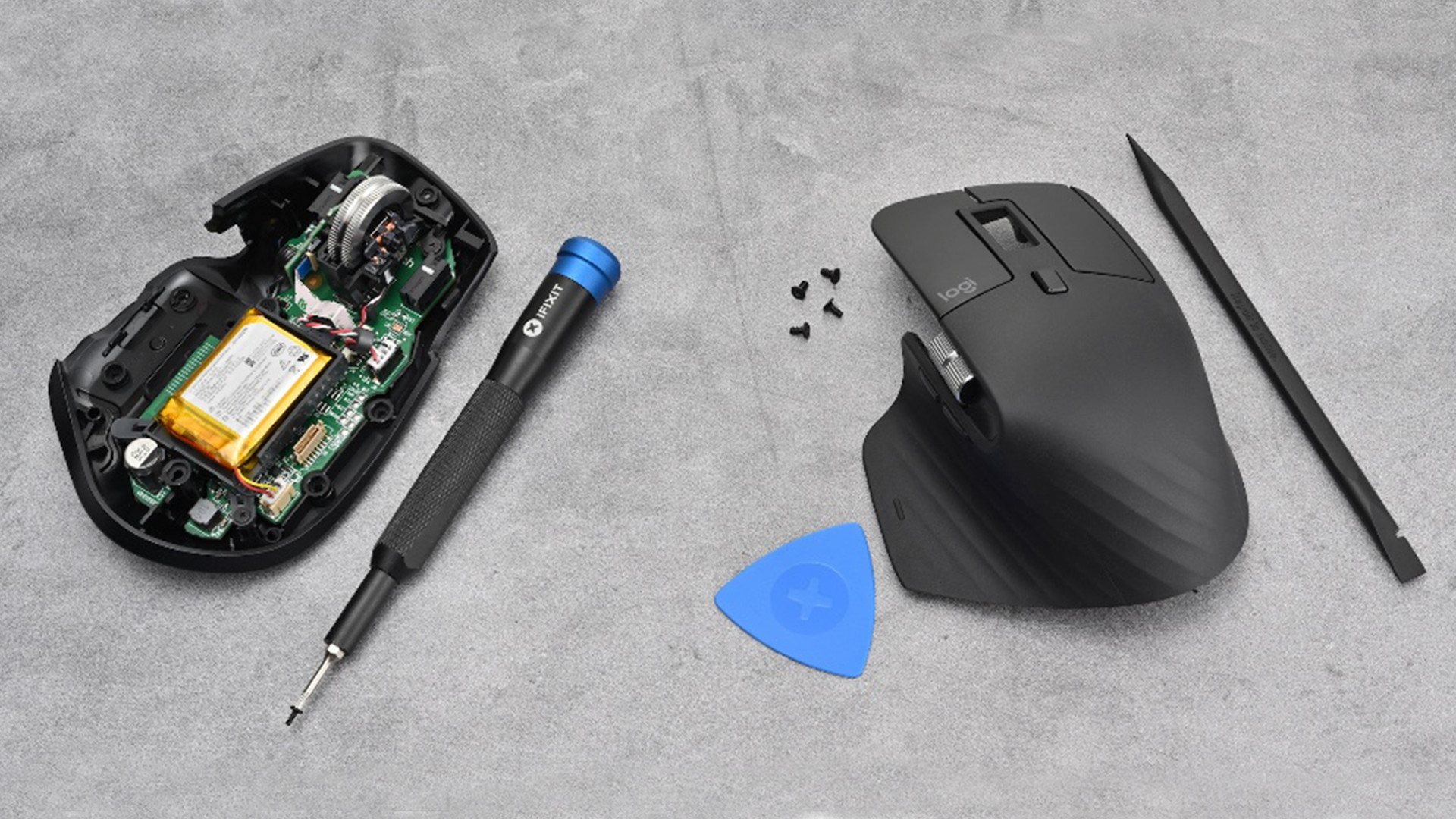Microsoft's repair-friendly Surface puts other laptop makers on notice – and it's about time
Fixer-uppers

Microsoft recently unveiled its upcoming Surface Pro 10 and Surface Laptop 6, and while they’ll be initially targeted towards schools and businesses rather than regular consumers like you and me, the Redmond-based company has a new design ethos that will – hopefully – benefit everyone.
Both new Surface devices have been designed from the ground up with repairability in mind, comprising more replaceable components than ever before and a new focus on improving ease of repair. Internal parts will be marked with QR codes to help easy identification, along with “clear visual icons and built-in repair instructions”, according to Surface general manager Nancie Gaskill.
So why is this important? Well, for starters, I’ve always been a champion of sustainable and repairable hardware; it’s the reason I scored the Framework Chromebook so highly when I reviewed it, despite its high price tag. Giving the user – or, at the very least, third-party vendors – the ability to easily and safely repair electronic devices might not be very attractive from a pure profitability standpoint, but it helps consumers save money in the long run, and it’s good for the planet as well.
The e-waste conundrum
"E-waste", as it’s called, is a rapidly mounting problem. According to The World Counts, we’ve collectively tossed more than 11 million tonnes of electronics just since the start of 2024 – a staggering, upsetting quantity. In the time it takes me to write this article, another few thousand tonnes will be sent to landfill.
In other words, we’re wasteful – but we don’t have to be. Planned obsolescence in tech hardware has been going on for years, and we’ve all noticed it: home appliances that simply don’t last as long as they used to; phone contracts that push us to upgrade every other year; laptops with short manufacturer warranties and no options for self-repair. Microsoft is taking a stand, and I couldn’t be happier about it.

Now, I don’t want to give the tech giant (or any large tech company, really) too much credit here. In fact, cynics could easily argue that Microsoft has an ulterior motive. Back in 2017, tech repair site iFixit gave the original Surface Laptop a zero out of ten score for repairability, claiming that it was “not meant to be opened or repaired”. It also stated that replacing the battery – something that was near-effortless in older laptops, thanks to modular battery units – was “difficult and dangerous”, thus limiting the device’s lifespan.
It seems that Microsoft took this personally; future Surface products were far easier to repair, and the company even teamed up with iFixit to start selling Surface repair tools in 2021. The new Surface Pro 10 and Laptop 6 are just the latest step for Microsoft, but that doesn’t make that step any less important – and even if Microsoft’s efforts are geared more towards repairing its public image, it’s still a very good thing.
Get daily insight, inspiration and deals in your inbox
Sign up for breaking news, reviews, opinion, top tech deals, and more.
Reduce, reuse, recycle… repair!
There’s nothing more frustrating than when a device breaks, and you can’t get it repaired cheaply and easily. You take it to a repair shop, only to find it can’t do anything. The only option is to send it off to the manufacturer, pray that your warranty is honored, and wait. Let’s be honest: that's not ideal.
Luckily, Microsoft isn’t alone in this recent push against e-waste. Earlier this year, Lenovo claimed it would make its newest ThinkPad laptops last for longer than ever, forging its own partnership with iFixit. Elsewhere, Acer has been working on its rather excellent line of Vero laptops, with eco-minded devices such as the Aspire Vero 15. And, of course, I couldn’t not mention the Californian company Framework, with its brilliant commitment to repairable, modular laptops. What, I already mentioned those guys? Hell, they’re so good at eco-friendly tech, I’ll mention them twice.

The question, of course, is this: will it be enough? After all, many heavy hitters in the tech industry are nowhere near Microsoft’s level. Just consider Apple claiming its Apple Watch 9 is "carbon neutral" – a neat little distortion of reality that fails to address the core causes of e-waste. We’ve been around the block enough to know that "carbon credits" are a sham, and "greenwashing" has become an ugly issue among multinational corporations.
Still, I don’t want to be too much of a Negative Nancy here. Every step towards truly sustainable tech is a worthwhile one, no matter how small. Microsoft, I commend you... but you might want to stop killing the planet with AI, too.

Christian is TechRadar’s UK-based Computing Editor. He came to us from Maximum PC magazine, where he fell in love with computer hardware and building PCs. He was a regular fixture amongst our freelance review team before making the jump to TechRadar, and can usually be found drooling over the latest high-end graphics card or gaming laptop before looking at his bank account balance and crying.
Christian is a keen campaigner for LGBTQ+ rights and the owner of a charming rescue dog named Lucy, having adopted her after he beat cancer in 2021. She keeps him fit and healthy through a combination of face-licking and long walks, and only occasionally barks at him to demand treats when he’s trying to work from home.